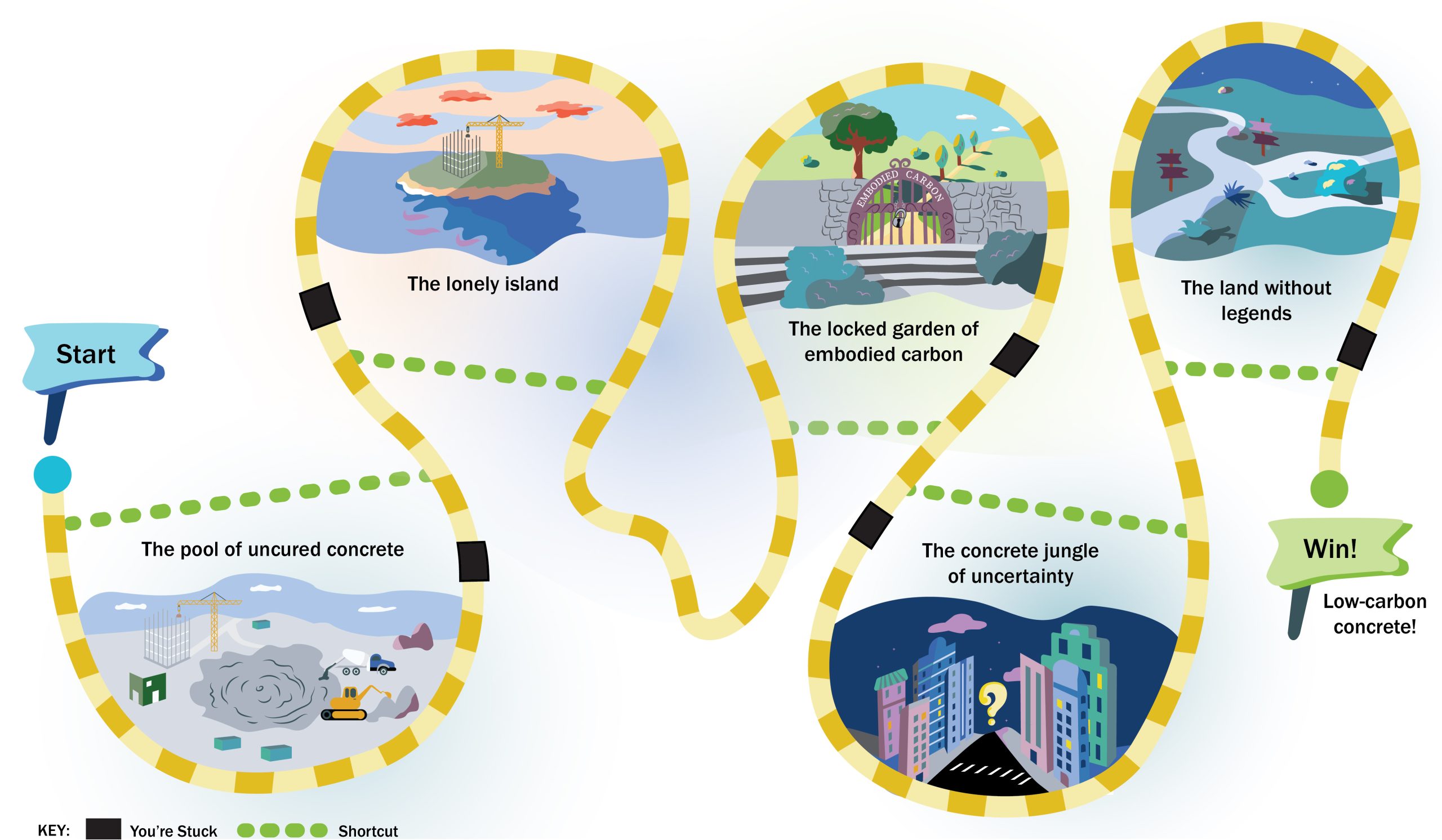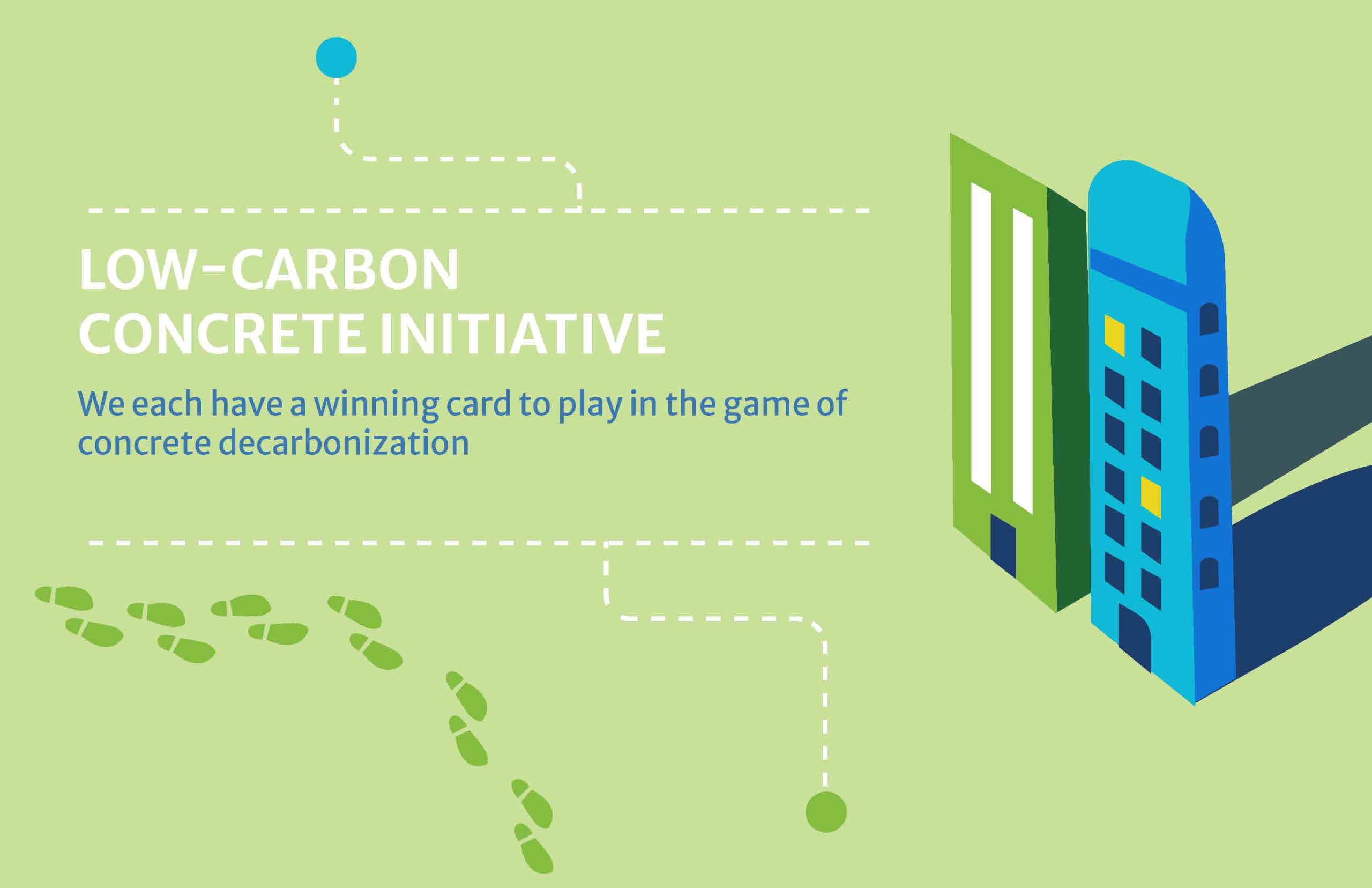Sources: Boston Society for Architecture; CP staff
To increase low-carbon concrete frequency in project specifications, the Boston Society for Architecture (BSA) and the Carbon Leadership Forum (CLF) Boston/Northeast Hub engaged in a year-long schedule of stakeholder-specific focus groups and cross-disciplinary working sessions. Among top challenges to mass adoption of low-carbon alternatives to conventional mixes, participants cited: Lack of early engagement with concrete suppliers and use of prescriptive specifications. BSA and CLF representatives determined from group and session takeaways that the central barrier to adoption “lies not in a lack of technology but rather in our current design and construction process, which gets in the way of needed collaboration, communication, and mutual education across disciplines.”

LOW-CARBON CONCRETE GAME BOARD
Focus group and working session perspectives inform a new report, Low-Carbon Concrete Initiative. Using a game-like format, it provides guidance for tackling challenges inherent in each design or construction step and provides solutions that are replicable and applicable in regions around the world. Along a winding Game Board path, those steps represent:
- The pool of uncured concrete: Where you’re stuck without industry demand
- The lonely island: Where you’re isolated in the traditional design process
- The locked garden of embodied carbon: Where prescriptive specs guard the key
- The concrete jungle of uncertainty: Where Environmental Product Declarations can’t guide the way
- The land without legends: Where embodied carbon goals are unclear

Report authors note that key stakeholders have peak leverage at different points in a project’s life cycle. Where concrete production is concerned, they conclude: “Ready-mix suppliers have already been reducing the carbon in mixes and can take the lead on their own. They can also influence their customers, concrete installers, and general contractors by proactively letting them know which mixes are available.”
BSA and CLF will follow up on the report’s release by hosting 2024 Northeast Embodied Carbon Summit, June 20-21 in Boston. Organizers aim for attendees to educate each other and provide resources to the broader architecture, engineering & construction community. Summit registration details are posted here.